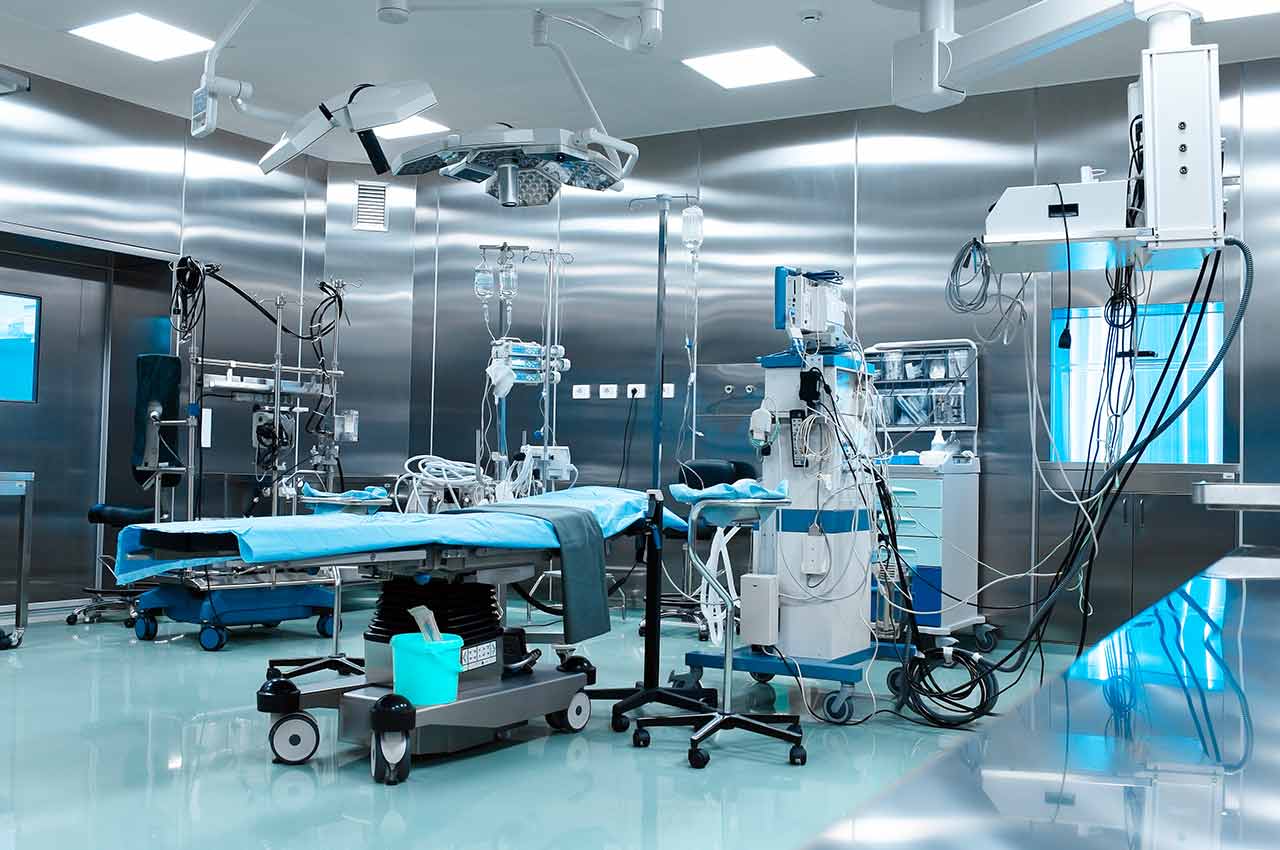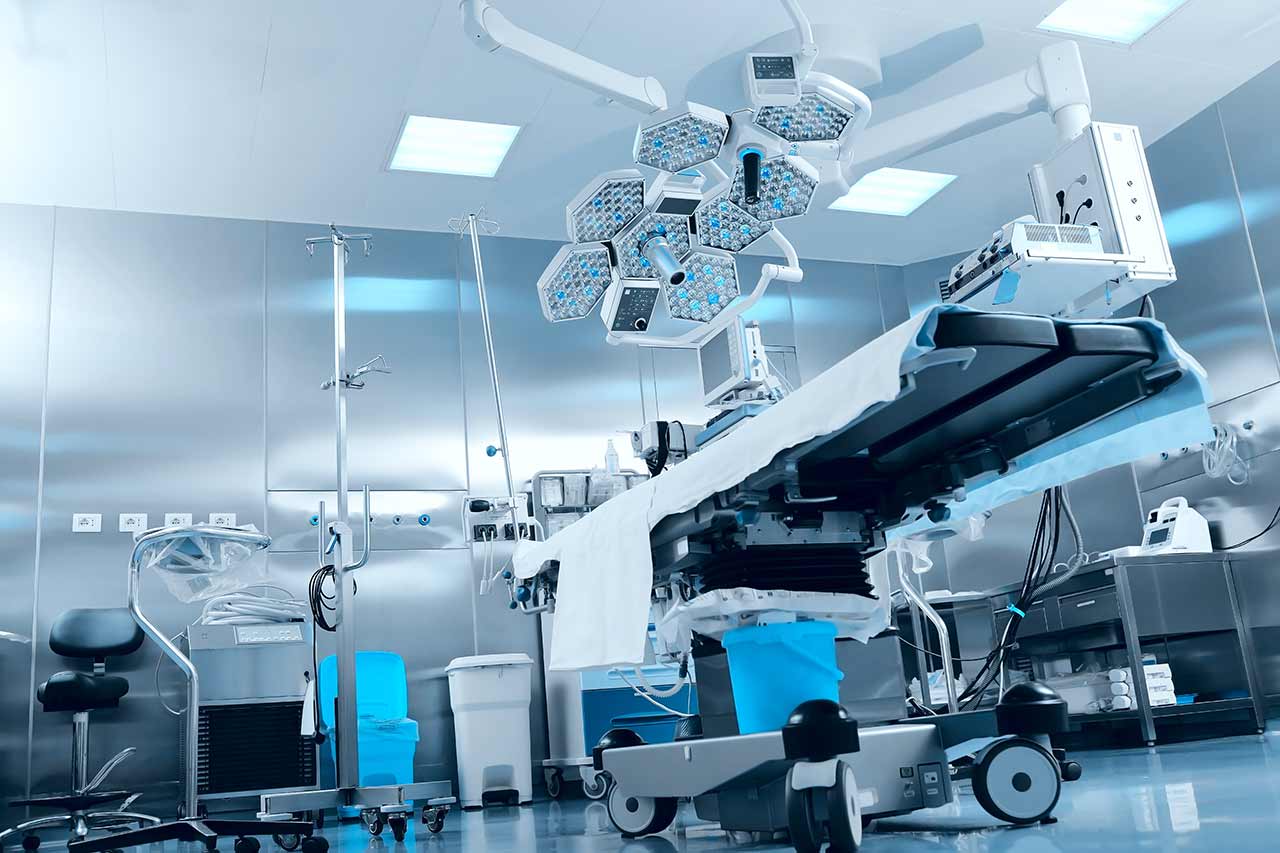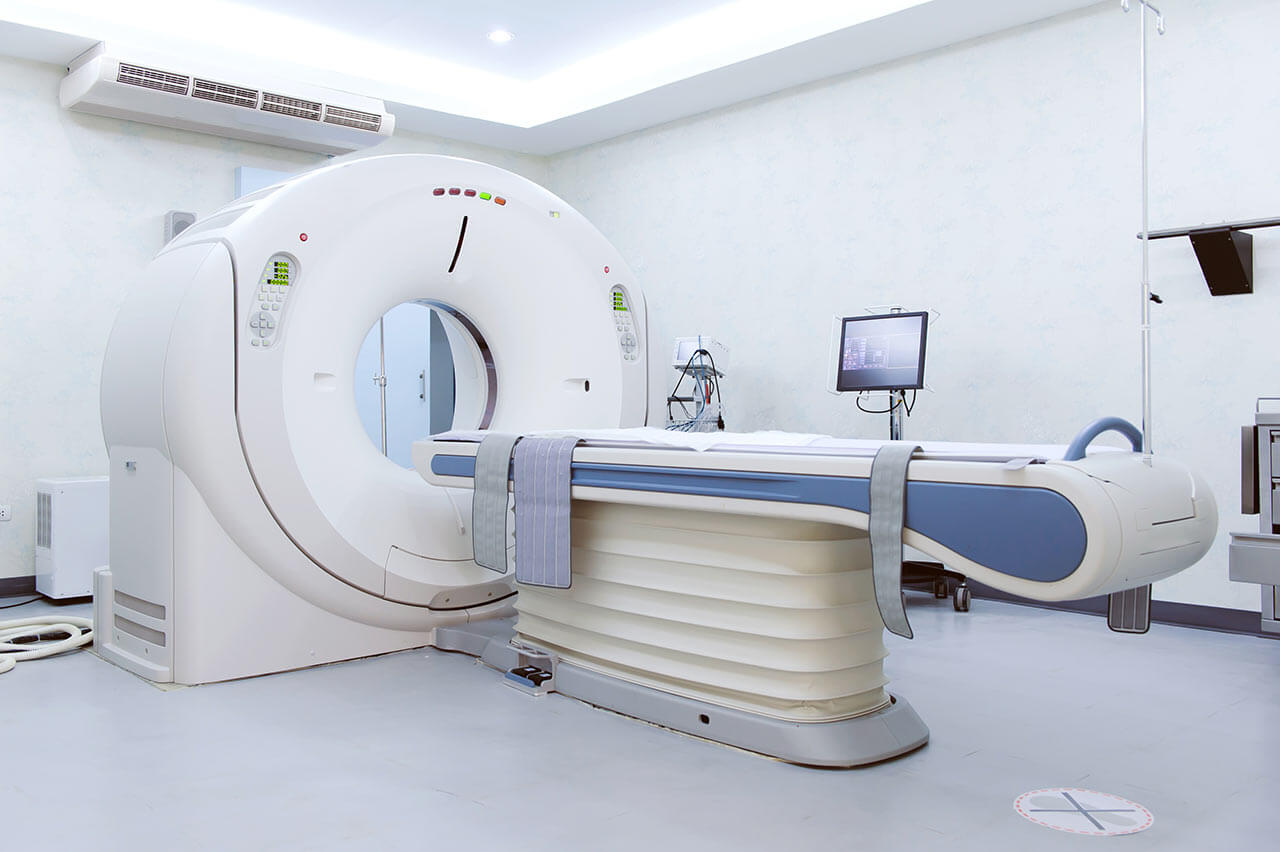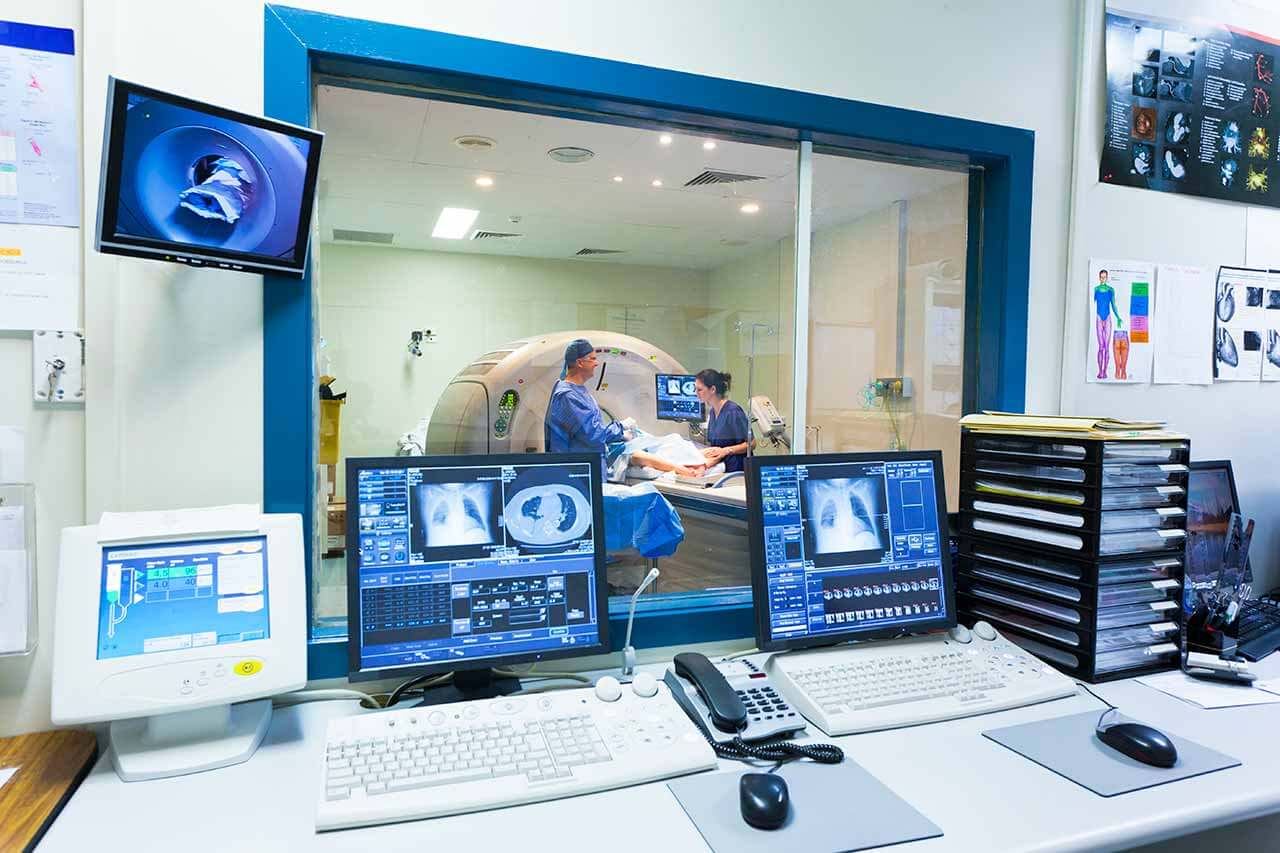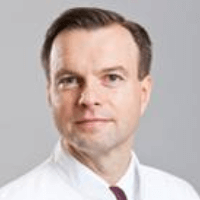
The program includes:
- Initial presentation in the clinic
- clinical history taking
- review of medical records
- physical examination
- laboratory tests:
- complete blood count
- biochemical analysis of blood
- TSH-basal, fT3, fT4
- tumor markers
- inflammation indicators (CRP, ESR)
- indicators blood coagulation
- general otolaryngological examination
- CT/MRI of the head
- preoperative care
- removal of the tumor with plastic of the ear
- histologically and immunohistochemically
examination of the removed tissues - symptomatic treatment
- control examinations
- the cost of essential medicines and materials
- nursing services
- full hospital accommodation
- explanation of future recommendations
Required documents
- Medical records
- MRI/CT scan (not older than 3 months)
- Biopsy results (if available)
Service
You may also book:
 BookingHealth Price from:
BookingHealth Price from:
About the department
The Department of Adult and Pediatric Otolaryngology at the University Hospital Frankfurt am Main offers the full range of modern diagnostics and treatment in this field. Of particular interest is the treatment of hearing loss and deafness in adults and children. In addition to microsurgical procedures for hearing improvement, the department also carries out interventions for the installation of implantable hearing aids and cochlear implants. The spectrum is complemented by the treatment of head and neck tumors (functional and minimally invasive interventions, laser surgery and plastic reconstructive surgery), diseases of the nose and paranasal sinuses (microscopic and endoscopic techniques, intraoperative navigation) and skull base pathologies. The department is headed by Prof. Dr. med. Timo Stöver.
The department has the reputation of a maximum care hospital and it is certified in accordance with DIN ISO 9001: 2008 standards. In addition, the department's specialists are proud of their outstanding research activities, which have given birth to many significant scientific innovations and effective treatment methods. Also, the department implements a large-scale cochlear implantation program in the Rhine-Main region, which makes it one of the leading German medical facilities in the field of its specialization.
The department offers both inpatient and outpatient treatment. Particular attention is paid to an individual approach to each patient, an careful and respectful attitude. In addition, the department's doctors get along well with children and do everything possible to make the child’s treatment as comfortable as possible.
The main focuses of the department’s clinical practice include:
- Diagnostics and treatment of hearing impairment in adults
- Deafness
- Chronic middle ear inflammation
- Otosclerosis
- Installation of implantable hearing aids
- Cochlear implantation in adults and children
- Diagnostics and treatment of otolaryngological diseases in children
- Hearing loss
- Enlarged pharyngeal tonsils
- Enlarged palatine tonsils
- Recurrent inflamed tonsils
- Diagnostics and treatment of diseases of the nose and paranasal sinuses
- Nasal septum deviation
- Diagnostics and treatment of salivary gland diseases
- Salivary gland stones
- Benign and malignant salivary gland neoplasms
- Diagnostics and treatment of head and neck tumors
- Facial skin tumors
- Salivary gland tumors
- Tumors of the oral mucosa
- Tongue tumors
- Tumors of the tonsils and throat
- Tumors of the larynx, nose and paranasal sinuses
- Tumors of the neck and ears
- Surgical treatment (for example, laser surgery with the preservation of organ functionality, reconstructive interventions using patient's own tissues)
- Chemotherapy
- Radiation therapy
- Antibody therapy
- Combination therapy
- Laser therapy with the preservation organ functionality (CO2 laser, Er:YAG laser, Nd:YAG laser, KTP laser)
- Removal of laryngeal tumors with voice preservation
- Tonsillotomy
- Reduction of nasal conchae in impaired nasal airflow (laser conchotomy)
- Palatal lift in snoring
- Operations on auditory ossicles
- Sclerotherapy of blood vessels (in hemangiomas, Osler disease)
- Endoscopic restoration of swallowing in Zenker's diverticulum
- Plastic and aesthetic surgery of the scalp and face (for example, in spider veins, pigment spots)
- Plastic surgery
- Nose reshaping
- Otoplasty
- Restoration of facial gesture in facial nerve paralysis
- Facial and neck scar revision
- Removal of scalp and facial tumors
- Flap plastic surgery after tumor removal
- Installation of epitheses
- Treatment of spider veins and age spots
- Skull base surgery using navigation systems, neuromonitoring
- Other medical services
Photo of the doctor: (c) Universitätsklinikum Frankfurt
About hospital
According to the reputable Focus magazine, the University Hospital Frankfurt am Main ranks among the top German medical facilities!
The hospital was founded in 1914 and today is a well-known German medical facility, which combines rich traditions and scientific innovations. A medical team of more than 6,500 employees cares about the health of patients around the clock, ensuring them with the highest standards of medical care and best possible safety.
The hospital has 32 specialized departments and more than 20 research institutes, which have all the necessary resources for the provision of the most effective care for any patient. The hospital has 1,488 beds for inpatient medical care. The medical facility diagnoses and treats more than 51,000 inpatients and about 44,800 outpatients every year. Due to the demonstration of outstanding treatment results, the number of patients seeking medical care here increases significantly annually.
The hospital presents all areas of modern medicine, whereas its special competence lies in neuroscience, oncology, cardiovascular medicine, cardiac surgery and other fields. Many treatment methods available here are unique not only in Europe, but also internationally.
Photo: (c) depositphotos
Accommodation in hospital
Patients rooms
The patients of the University Hospital Frankfurt am Main live in comfortable rooms made in modern design and meeting the highest standards of European medicine. Each room is equipped with an ensuite bathroom with a toilet and a shower. The standard room includes a comfortable, automatically adjustable bed, a bedside table, a wardrobe, a table and chairs for receiving visitors and a TV. If desired, patients can use Wi-Fi. The patients can also stay in the enhanced-comfort rooms.
Meals and Menus
The patient and his accompanying person have a daily choice of three menus. If for any reason you do not eat all the food, you will be offered an individual menu. Please inform the medical staff about your dietary preferences prior to the treatment.
Further details
Standard rooms include:
Religion
Religious services are available upon request.
Accompanying person
During the inpatient program, an accompanying person may stay with you in a patient room or in a hotel of your choice.
Hotel
During the outpatient program, you may stay in a hotel of your choice. Managers will help you choose the most suitable options.
